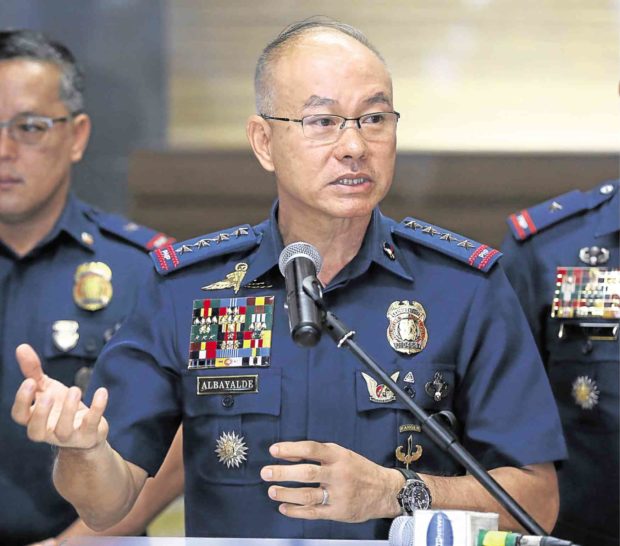PNP chief urges gov’t to correct old flaws in mandatory ROTC

PNP chief Police Gen. Oscar Albayalde. INQUIRER file photo
MANILA, Philippines — Philippine National Police (PNP) chief Police Gen. Oscar Albayalde on Tuesday urged the government to correct old flaws to fine tune the bill that proposes the mandatory Reserve Officers’ Training Corps (ROTC) for Grades 11 and 12 in public and private schools.
In a chance interview at Camp Bagong Diwa in Taguig City, Albayalde reiterated the “full support” of the police force to the proposed mandatory ROTC for senior high school students, but admitted he was not assuring that the training will be fool-proof.
“Hindi natin sinasabi that this will be a perfect process or procedure. Kailangan din talaga natin [ayusin] because in the past merong abuso, meron ding corruption. Kailangan nating macorrect lahat ito,” he said.
(We are not saying that this will be a perfect process of procedure. We really need to [fix this] because in the past, there were cases of abuse and corruption. We should correct all these.)
The military and the PNP, after all, are not perfect organizations either, said Albayalde.
Article continues after this advertisement“Meron ring flaws [sa ROTC] na kailangan nating bantayan din ito. Baka bumalik din before ‘yung allegations na nagbabayad para macheck ‘yung attendance. May mga ganyan,” he said.
Article continues after this advertisement(The ROTC also has flaws that we need to monitor. Allegations of paying for the attendance in the past may return. There were cases like that before.)
Despite groups airing fears of abuse, President Rodrigo Duterte has earlier certified as urgent Senate Bill No. 2232, which mandates the “institutionalizing, development, training, organization, and administration” of basic ROTC for senior high school.
READ: Duterte certifies mandatory ROTC bill as urgent
If mandatory ROTC will be reinforced, Albayalde said it should be “professional” and “within the limits of the law.”
He, likewise, said that the Philippines, as a small country, needs to train reserve officers just like in other small countries in Asia.
Albayalde said that the training will also develop the sense of patriotism and nationalism among the youth.
“We should love our country, and this is one way of loving our country by defending it from… kahit ano mang maging (whatever) external threat,” Albayalde said. (Editor: Jonathan P. Vicente)